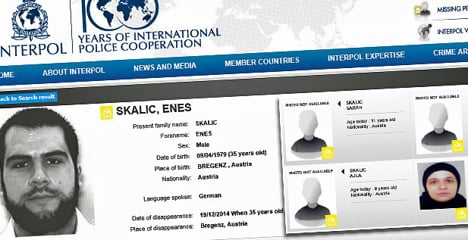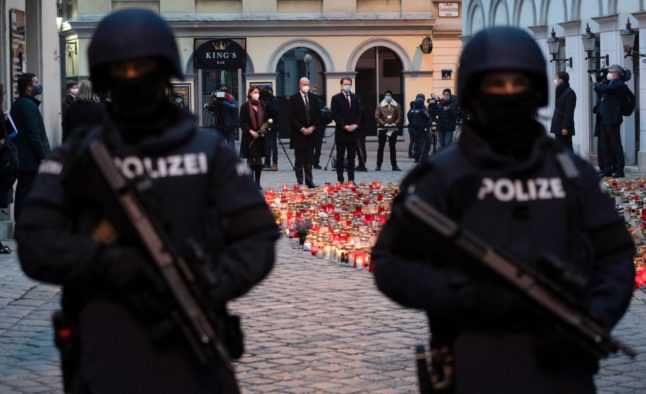35-year-old Enes S. and his wife Michaela (36) disappeared with their daughters Sarah (11), Ajla (nine) and two-year-old Enisa. The Austrian Press Agency (APA) also reports that the family has two sons, although this has not been confirmed by other sources.
Enes has Bosnian roots but was born in Bregenz, Austria. His wife is Austrian but converted to Islam when she married him, and already had one daughter.
Michaela’s sister notified the police on December 19th, when she realized the family was missing.
Enes worked as a self-employed carpenter in Graz-Neuhart, as well as Sigmundstadl and Wettmanstätten, but is reported to have been struggling to make a living and the family put their house up for sale last autumn. They had lived in western Styria since July 2013.
The mayor of Graz-Neuhart, Helmut Kriegl, said that the family had been there until the start of the Christmas holidays and that he remembered that Ajla, the middle daughter, had written in a school diary that she wished to make a pilgrimage to Mecca and finally wear a headscarf. He added that the family was “very discreet”, and had not given the impression that they wanted to leave the community.
Enes is known to Austria’s counter-terrorism agency, the BVT, as he is believed to be part of a “West Balkans fighter” circle, according to a report in the Kurier newspaper.
Some Islamists from this circle have been linked to the Vienna hate preacher Ebu Tejma and Bosnian Bilal Bosnic, who are both alleged to have recruited scores of fighters for Isis.
A core of Islamist radicals who fought in Bosnia during the Balkan Wars are still thought to control certain villages in Bosnia and train recruits from Italy, Austria and Croatia there before they travel to Syria.
According to the Kurier, Austrian intelligence analysts believe that Enes S. is already in Syria and that there is a trend for jihadists to take their families with them, as they then receive greater financial support from the Islamic State.



 Please whitelist us to continue reading.
Please whitelist us to continue reading.